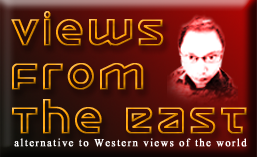 What a difference a decade makes, as they say. Qaddafi’s death has spread euphoria across the Arab world, a celebration we can call as delayed. Why? The same euphoria was felt elsewhere back in the early 2000s as diplomatic ties between Libya and the West gained new heights. In the years following Qaddafi’s decision to abandon development of weapons of mass destruction, Libya saw a renaissance of close ties with the West: then British Prime Minister Tony Blair visited Qaddafi in 2004, the first such visit since 1943; US lifts its trade embargo on the country; and the EU followed by lifting arms embargo.
What a difference a decade makes, as they say. Qaddafi’s death has spread euphoria across the Arab world, a celebration we can call as delayed. Why? The same euphoria was felt elsewhere back in the early 2000s as diplomatic ties between Libya and the West gained new heights. In the years following Qaddafi’s decision to abandon development of weapons of mass destruction, Libya saw a renaissance of close ties with the West: then British Prime Minister Tony Blair visited Qaddafi in 2004, the first such visit since 1943; US lifts its trade embargo on the country; and the EU followed by lifting arms embargo.
The timing could not be more right for the West, the Iraq war has just begun and how to keep it going without hurting the economy too badly than inviting themselves to explore and exploit Libya’s natural resources? Looking back from this year, we can only see how the West, for a decade now, is busy shopping for oil across the planet.
2008 for Libya and the West becomes more intimate as then US Secretary of State Condoleezza Rice meets Qaddafi in Tripoli, the first such visit since 1953. Italy’s leader Silvio Berlusconi then agrees to invest billions in Libya.
2009 brought Qaddafi closer to the leaders who will betray him in the future: he makes a controversial visit to Italy and there had to shake hands with Barack Obama while on a G8 summit.
But the West won’t allow the world to see this renewed intimacy, so as the Arab Spring of 2011 arrived, a new policy on Libya was drafted. Thanks to the uprising, we can only imagine how some countries saw this as the most opportune time to act, and act fast. UN authorizes a no-fly zone in Libya basing the decision on false accusations that Qaddafi is bombing its own people. The resolution made it clear that: arms embargo applies, and that no ground troops and mercenaries are allowed to ‘roam’ Libya. All these were violated by NATO: the ‘humanitarian’ mission gave arms to the rebels while ‘special ops’ helped the rebels gain ground by secretly dropping mercenaries off Tripoli’s shores. Today it is no secret; these secret forces are hailed for being strategic in helping pin down the unpopular leader.
So what now? I suspect there is power politics here as well, as hindsight; the Libyan humanitarian operation might be part of a larger agenda to isolate the Chinese from investing and having leverage in the African continent. Are we not tired of seeing Africans becoming under the boots of the West? Can we give the BRICs a chance to drive change and cultivate a wider policy of development for Africa? As far as history goes, Africa is nothing but the West’s slave and resource exploitation waste land.
We can only speculate what happens to this energy-rich country. Qaddafi’s death is an opportune time to rebuild Libya in the eyes of the West, as if anything, Afghanistan and Iraq serves a recent testament to the kind of ‘democracy’ Western interventions bring to these countries.

